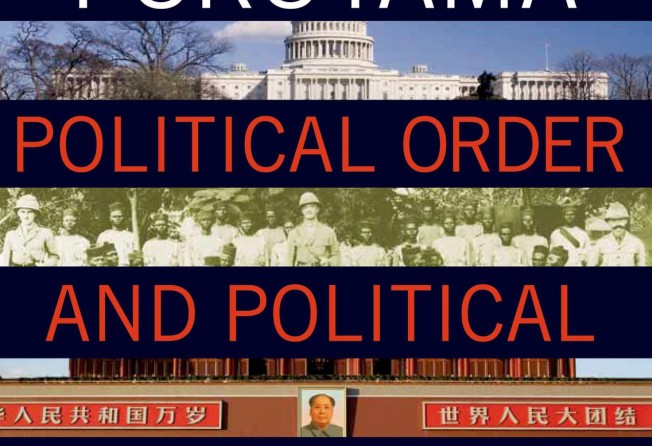
Francis Fukuyama brilliantly analyses the different roads to democracy, book review

Political Order and Political Decay
by Francis Fukuyama
Profile Books

Businesswoman Laura Cha stirred up a storm in October when she suggested that Hong Kong citizens should be patient in waiting for true universal suffrage, comparing their journey towards democracy to that of African-Americans.
Her chosen example drew headlines like Quartz's "An HSBC director just likened Hong Kong's citizens to slaves". Her comment, however, touches on the big questions that have been gripping Hong Kong in recent months and which are at the centre of Francis Fukuyama's sweeping new book: how can we get to Denmark and, crucially, how do we stay there?
Denmark here stands as an icon of good governance, fair society and quality of life. But the paths there are twisted, potholed and plagued with wrong turns. Full voting rights weren't extended to all African-Americans until 1965.
Cha could have had her pick of less damaging examples to make the point: Greek men got the vote in 1864; women had to wait another 88 years for their say. Women in some areas of Switzerland didn't get the vote until 1990.
Democracy may be one step along the way to our ideal state, but it's only one of many. It may be as big a curse as a blessing. Countries such as the US or the Philippines that introduced democracy before the creation of a modern state with professional and autonomous bureaucracies and the rule of law may fall prey to corruption and clientilism.
Perversely, some of today's best-run countries sprouted from distinctly undemocratic and often violent roots. Prussia, the precursor to modern Germany, developed a formidable, efficient bureaucracy to maintain the military machine that ensured the state's survival. The threat of war has often been a driver for more effective governments.
This book is no apologia for regimes that deliver effective administration such as China and Singapore, whose elites plead the exceptionalism of "Asian values" or "unreadiness" as reasons to deny their people a say in government.
"Democratic accountability is critical to the proper functioning of political systems because it is ultimately the basis for authority. Democracy serves as an important end of human life in its own right, independently of the quality of government that such a system produces".
While the US and Germany arrived at similar points from different directions, there are no guaranteed trajectories to liberal democracy. Political systems are a result of rule of law, professional bureaucracies, geography, external forces, the spread of ideas and economic growth.
Economic growth forces great social changes. Rural populations ruled by landholders move to cities, breaking down old ties and beliefs. New groups - workers, property-owning middle classes - seek to further their interests. How ruling elites respond to these demands is the difference between stability and revolution, peace and war, democracy and tyranny.
There can hardly be a more timely book to address this topic, especially when read with Hong Kong as a backdrop. The global financial crisis, Europe's fiscal implosion and the bloody aftermath of the Arab spring have all been used to contrast the failings of democracy with the autocratic success story of the Chinese state. All play into the fear of disorder and chaos that the Chinese elite have used to help hold onto power. China's ruling elite base their legitimacy on delivering strong and effective government and on the promise of shared benefits from economic growth.
The nation's growing middle class is willing to be co-opted so long as it gets a slice of the pie, and its newly gained property is protected.
Ironically, the Chinese Communist Party now offers more protection for the property rights of the populace than ever before, while it is the elites who have most to fear from Xi Jinping's anti-graft clampdown.
During Hong Kong's recent protests, surveys showed people valued the rule of law above democracy, showing how fear of disorder can trump demands for a greater say in government. But when systems grow too rigid to adapt to changes wrought by the economy, we can expect friction.
Rule of law should be a constant, but law itself is alive and evolving. If lawmakers act in the service of vested interests, unaccountable to large sections of society, the rule of law may become oppressive. Hong Kong's leaders also appear trapped in the realm of ideas. When Chief Executive Leung Chun-ying said in October that democracy would result in poor people dominating the government he was voicing a conservative ideology that can be traced to a colonial administration structured to serve the interests of a tiny business elite.
The problem for Leung is that in the face of soaring property prices, stagnant incomes and growing inequality, the interests of Hong Kong's middle class are increasingly diverging from those of its ruling elite. Graduates who can't get a decent job and have no chance of climbing the property ladder are going to be hard to persuade.
The lessons for Hong Kong and Chinese leaders in Fukuyama's book are as clear as that on the banner protesters laid out on Harcourt Road two weeks ago: "We'll be back."